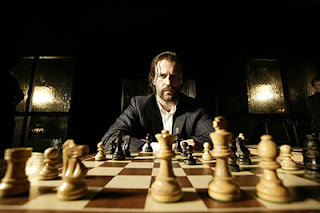
"Happinet Pictures presents..." - starts the movie which is rather an ironic statement according the later happenings. After his visit in timeless, universal tragedy (The Bow) Kim Ki-duk found his way back to the contemporary South Korean drama. Because what could be more from our period than the horroristic world of the aesthetic clinics and their slaughterhouses?
The very beginning tells already about the director: Nobody can mix better the brutality with the kitsch than Ki-duk. During the credits the viewer forced to watch all the horror of a face operation (actually in reality it is part of applying for such a surgery) and listen some Hisaishi-like soft, overemotional music (Noh Hyung-woo). Ki-duk is one of the only exceptions among film directors whose movies are able to handle this discrepancy. The truism with all its banality somehow fits to him. This time the cliche called "Time will change everything". But who would dare to translate literally this stupid statement? Who would mix together the pain of a lost love with the 6 months recovery pain of a face operation? Who would combine with these to emotions with the healing feature of time?
According to Seh-hee and Ji-woo's relationship Ki-duk doesn't talk about love. In his contemporary metal-cold metropolises love doesn't exist anymore. There is something which reminds us to the love, the movie calls them 'vibration' and 'affection'. But these ruins of the real emotion cannot substitute the feelings of a true and honest love. The affection is rather impersonated: the people aren't in love with the personality but the outlook, the physical appearance. As Seh-hee realizes after an unsuccessful love-making: "It can be boring to look at the same face all the time." And this is the source of the couple's and the film's tragedy.
It is really worth to watch even if you're not the biggest fan of the director. The final loop which opens masterfully the film's horizon is simple perfect!
The realism is more frightful than the horror. Click:

8/10










